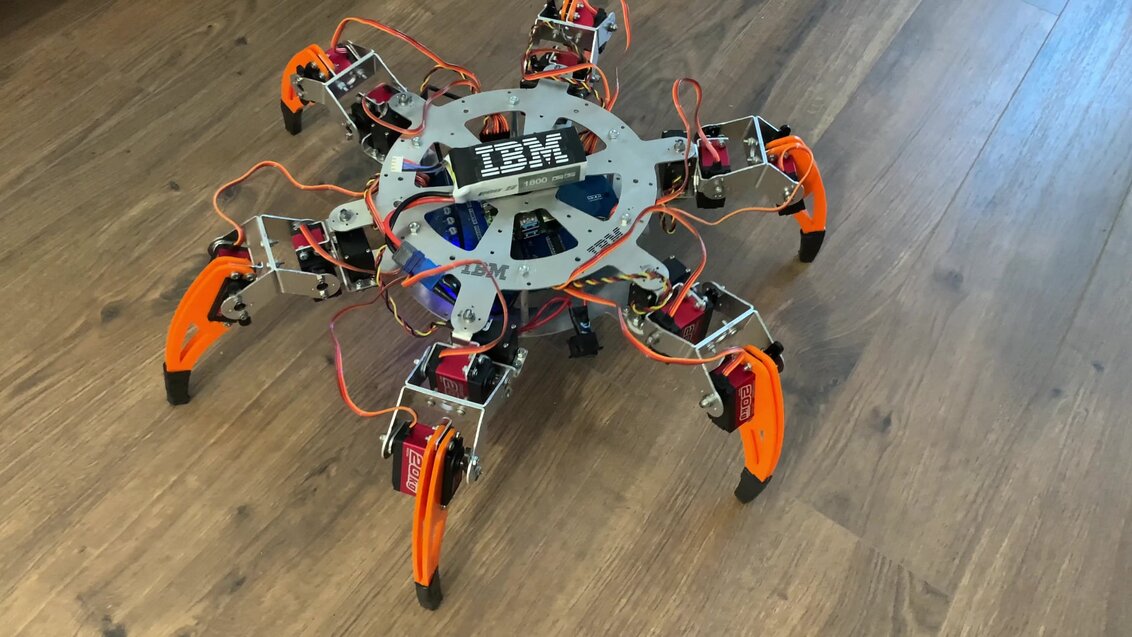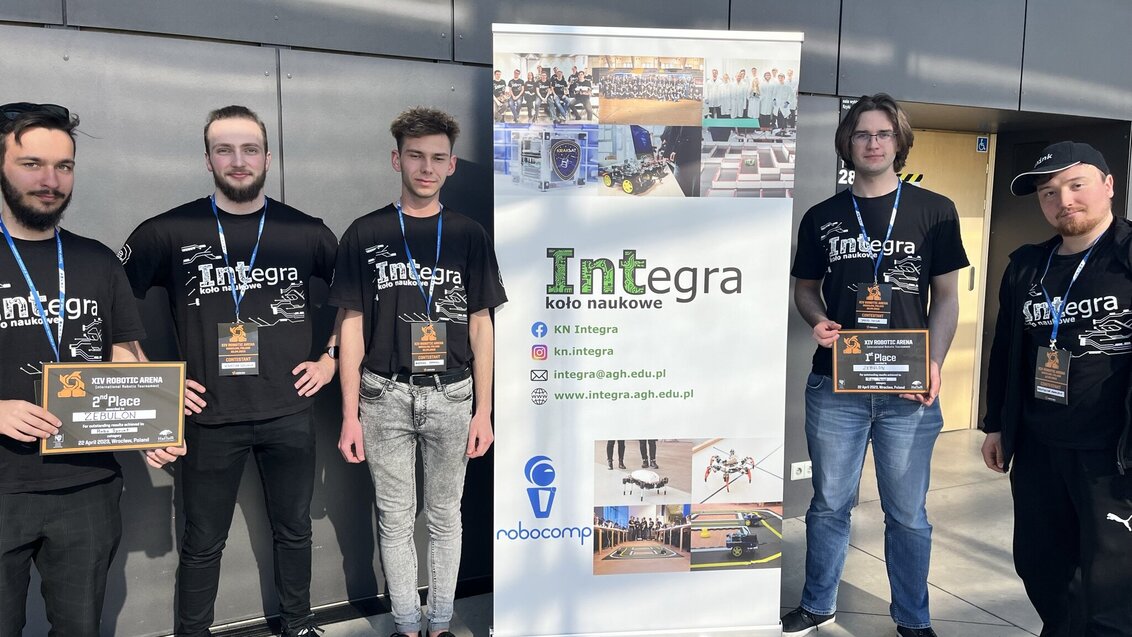
Zebulon. Photo: source: facebook.com/knintegra
Two creations of the Integra AGH Student Research Club, Zebulon and Zebulon 2.0, claimed the podium during one of the largest robotic competitions in Poland, Robotic Arena.
The Zebulons are two generations of hexapod mobile robots with central symmetry. They consist of 18 servomechanisms and a platform made of aluminium (in the case of Zebulon) or carbon fibre (used in Zebulon 2.0). The actuators are operated by the Pololu Maestro servo controller and the main processing unit is a Raspberry Pi (4B model). Thanks to the application of algorithms that are based on the actual movements of insects, both robots move quickly and smoothly. Additionally, wireless communication based on Bluetooth and WiFi technologies used in the project allows the operators to control the robots remotely and make the robots perform extra tricks (waving their legs or dancing).
The robots made by Integra AGH competed in the robo-sprint category, in which they had to finish the track as quickly as possible and reach the line. Zebulon 2.0 bested all its rivals, crossing the finish line first. Zebulon came second.
For more than 10 years, Integra AGH has been an active student research club in the Department of Automatic Control and Robotics of the Faculty of Electrical Engineering, Automatics, Computer Science, and Biomedical Engineering, bringing in students from the entire university. Its chief activities revolve around the creation and continuous improvement of mobile and autonomous robots. The academic supervisors of Integra AGH are Dr Eng. Marek Długosz and Dr hab. Eng. Paweł Skruch, Associate Professor at the AGH University.
The Robotic Arena competition is organised by the ‘KoNaR’ student research club from the Wrocław University of Science and Technology. This is one of the largest robotic events in Poland that attracts hordes of contestants and rooters alike. The 14th edition of the event brought in more than 250 competitors from 7 countries, including Poland, Kazakhstan, Azerbaijan, and Thailand. 350 machines participated in the competition (robots, drones, and rovers). They raced, overcame obstacles, and fought in rings. They were challenged in 17 different competitions, including those drawing from the Japanese tradition of sumo wrestling (PicoSumo, NanoSumo, MicroSumo Enhanced, MiniSumo Enhanced, Sumo, and MegaSumo) or those where speed and agility mattered the most (LineFollower Drag, LineFollower Turbo, and LineFollower Light). Moreover, drones and robots with legs (rather than traditional wheels) also had a chance to compete (Stunt, Infinity, and Sandbox, and RoboSprint, respectively). As always, the most spectacular competitions included those in which robots fought in cages with saws, knives, hammers, and pickaxes (Combat Raptor and Combat Antweight) or moved through a labyrinth (MicroMouse 16x16).
The 14th edition of the Robotic Arena competition took place on April 22, 2023 in Wrocław.
Photo: source: facebook.com/knintegra

 Pre-election meeting with a candidate for the position of rector
Pre-election meeting with a candidate for the position of rector  Agreement on cooperation with OPAL-RT
Agreement on cooperation with OPAL-RT  Krakow DIANA Accelerator consortium members with an agreement
Krakow DIANA Accelerator consortium members with an agreement  Meeting with the Consul General of Germany
Meeting with the Consul General of Germany  More Academic Sports Championships finals with medals for our students
More Academic Sports Championships finals with medals for our students  Bronze for our swimmers at Academic Championships
Bronze for our swimmers at Academic Championships  Smart mountains. AGH University scholar develops an intelligent mountain rescue aid system
Smart mountains. AGH University scholar develops an intelligent mountain rescue aid system